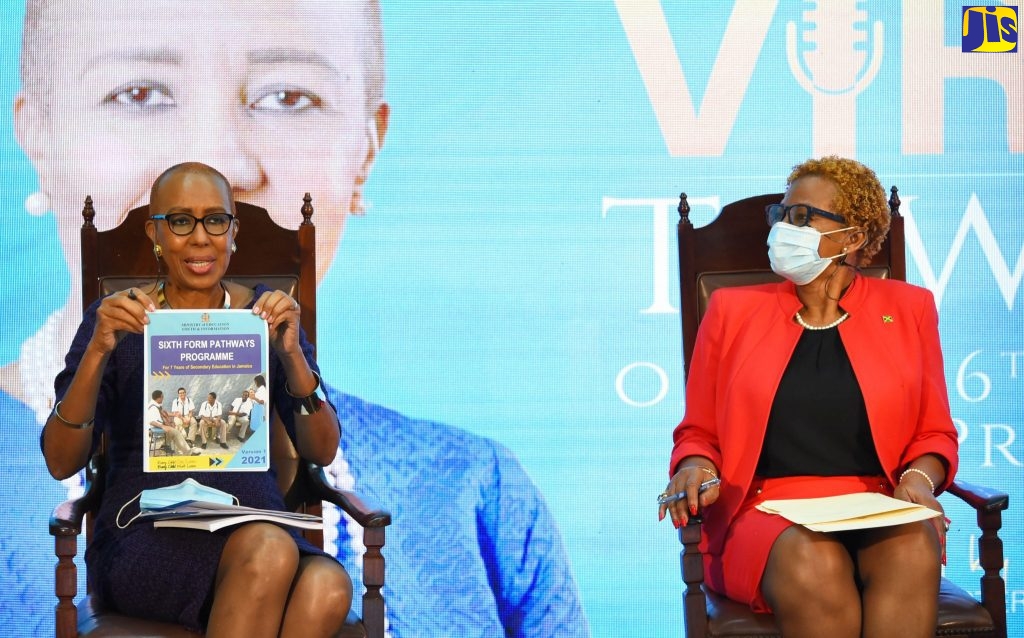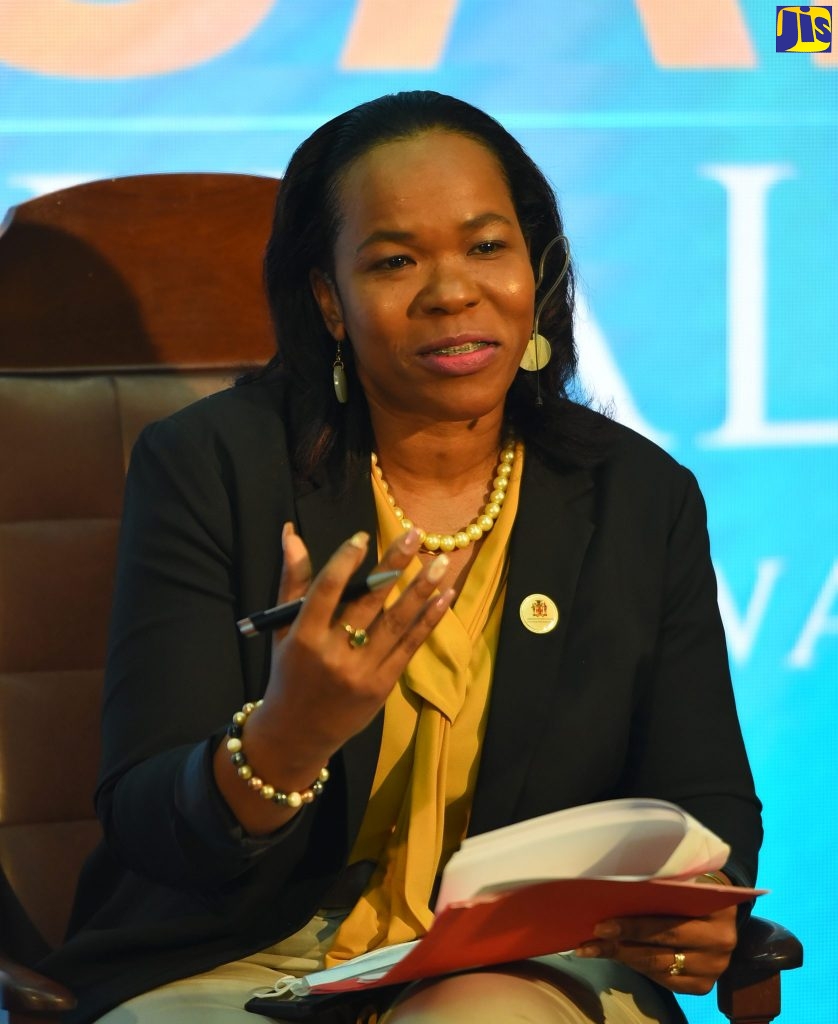Pathways Programme for Tertiary Level and Vocational Qualifications
By: , November 6, 2021The Full Story
Students can access higher education through multiple opportunities provided under the Ministry of Education, Youth and Information’s Sixth Form Pathway Programme.
The new programme will be facilitated in all public secondary schools, along with 24 private and 10 public tertiary institutions.
“Jamaica has an obligation to provide education up to age 18, we have just never done it in a nationally-coordinated way like we’re doing now. This means that students will transition from grade seven, all the way through grade 13, and they’ll have their graduation at the end of grade 13,” the Minister of Education Youth and Information, the Hon. Fayval Williams said.
She was speaking at the Sixth Form Pathway Programmes virtual Town Hall meeting which was held on Thursday (November 4.)
Meanwhile, the acting Chief Education Officer in the Ministry of Education, Youth and Information Dr. Kasan Troupe, says the programme offers three learning pathways.
She says Pathway One is known as the traditional sixth form system, where students pursue their Caribbean Advanced Proficiency Examinations (CAPE).
“Students who pursue this pathway are those who attained five or more Caribbean Secondary Education Certificate (CSEC) subjects inclusive of Mathematics and English. If you have stage three Math and English in your City and Guilds programme, you are also accepted,” she added.
Dr. Troupe says Pathway One also has subdivisions where students can pursue dual certifications including the CAPE, City and Guilds Certification or Associate degrees under the Centre of Occupational Studies in collaboration with other tertiary institutions.
Some of these institutions include the University of the Commonwealth Caribbean, International University of the Caribbean, Excelsior Community College and Portmore Community College.
“Pathway Two is for the students who are technically inclined. So, we call it the technical pathway. You have the option of pursuing your National Vocational Qualifications (NVQ) and the opportunity to do entrepreneurship, career development and more,” Dr. Troupe states.
She says in addition, students can pursue CAPE subjects if they attain the requisite subjects at the CSEC level.
“So, you have a mix, and you get the opportunity to retake your English and Maths subjects if it is that you would not have attained those at the CSEC level,” she advises.
“All other learners, who would have not had up to five CSEC subjects in Pathway Three, we will accommodate you. This is an opportunity again for you to pursue your NVQJ [National Vocational Qualification of Jamaica], CSEC, City and Guilds and for you to retake some of your programmes to get the certification that you will require to continue your pursuits beyond the two years of the programme,” she further points out.
Against this background, Dr. Troupe notes that there will be qualifications attributed to the respective pathways. Parents and students must communicate with their respective high schools for the necessary updates.
Meanwhile, Minister Williams shares that a student’s aptitude, interests, competence, qualification and personal preference will be considered for acceptance in the pathway programmes.
“[Also] students who may become disengaged from a sixth form programme before completion will be eligible for re-admission to that programme as soon as practicable, provided that the young person has not attained the age of 18 years on August 31, in the year they seek readmission,” she discloses.
Additionally, she says students who choose to access a tertiary level instead of the sixth form programme, are still considered part of the seven years of high school and are “entitled to the National School Learning Certificate.”
“On completion of the first two years of their programme, they’re eligible for participation in the secondary school leaving ceremony where this is offered and if they choose to do so,” she stated.
The programme was implemented through the Ministry of Education, Youth, and Information to allow students the opportunity to pursue an additional two-year course of study at a subsidised cost.
One of the key objectives of the programme is to better enable students to meet the needs of the labour market and enhance capacity and competitiveness, through human and social capital investment and development.
Minister Williams says creating flexible pathways to higher education forms part of the Ministry’s efforts to engage at least 80 per cent of Jamaicans to participate in higher education.
“In Jamaica we have traditionally ended secondary school at grade 11 or sixth form with only those passing five or more CSEC going on to sixth form which is grade 12 and 13 for CAPE studies. In some few instances, some students are offered the City and Guilds engineering level three, leading to dual certification. This means that only 35 per cent of the approximately 40,000 students who complete grade eleven annually, transition to a six-form programme.”
The Town Hall meeting was held to engage stakeholders about policies and programmes in the Ministry.






